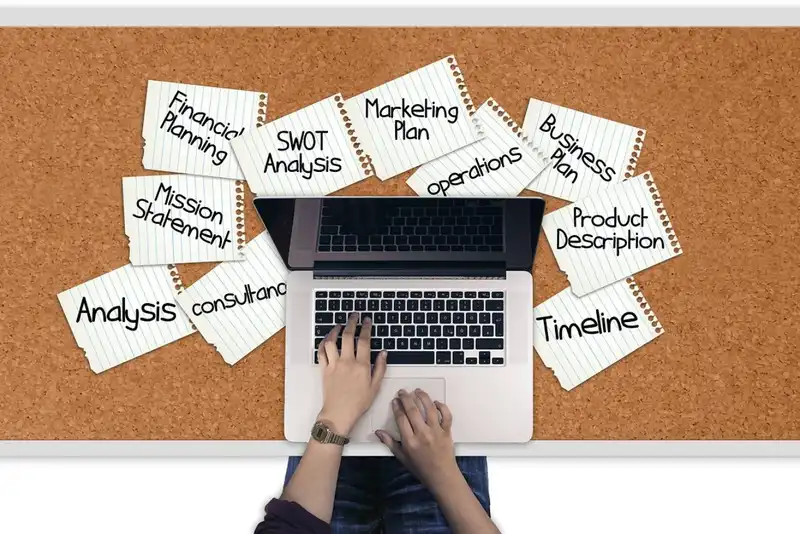What are business intelligence technologies?
There are a number of business intelligence technologies available, including data warehousing, data mining, online analytical processing (OLAP), and reporting. These tools can help organizations make better decisions by providing them with access to accurate and up-to-date information.
5 Ways Business Intelligence Technologies Can Leverage a Restaurant's Growth
What are Business Intelligence Technologies?

Business intelligence (BI) technologies help organizations understand their data, so that they can make better decisions and improve their bottomline. BI technologies can track customer behavior, understand market trends, and optimize business processes. Business intelligence tools help management obtain a comprehensive view of the operation by aggregating data from different sources.
This allows the user to identify trends, understand relationships between different datasets, and make informed decisions about their business. The right BI technology enables you to drill down deep into data, apply analysis such as moving averages and regression to highlight trends, use time-series data to scan large datasets in order to understand anomalies, and through cloud computing set alerts for data exceptions.
For instance, a BI system for the restaurant business will provide data driven insights that can help you understand how your foodservice business is performing. It will consider data on sales, inventory, customers, suppliers, kitchen, and more, to better understand market trends, competitor strategies, customer preferences, and other aspects important to a restaurant business. With this information, you can develop long-term strategies to improve your business and beat the competition.
Business intelligence technology is always evolving and progressing. With new software and platforms launching constantly, it can be hard to keep up with what's popular in the BI world. However, some technologies have withstood the test of time and are still considered some of the best BI tools around. These include data warehouses, mining, OLAP software, business performance management software, and dashboards.
- Data warehouses are like storage units for businesses. They keep all the data from different areas in one place so that it can be looked at as a whole. Data consolidation gives businesses an overview of their operation and helps them with better decision making.
- Data mining is finding hidden patterns and relationships in datasets. The information collected can then be used to make predictions or recommendations.
- OLAP (online analytical processing) tools are a great way for users to understand data from multiple angles and find trends they may have otherwise not found.
- A BI Dashboard provides an up-to-the-minute view of key performance indicators so you can track progress and spot problems early. This information at your fingertips enables you to take corrective action quickly before the problem gets out of hand.
How Business Intelligence Technologies Impact Inventory
Business Intelligence (BI) can monitor inventory in a number of ways. By analyzing data from buying patterns and customer demographics, businesses can refine their inventory and optimize how much to stock at each store. It reduces the risk of a restaurant running out of stock because the restaurant can now accurately forecast how much it need to have on hand. This predictive analysis is especially beneficial to small businesses. BI can also predict overstocking before it becomes a problem by drawing on quality data from sales, refilling, and forecasting.
For example, maintaining an accurate and up-to-date list of ingredients is crucial for any restaurant looking to run efficiently and manage costs. A key part of this is understanding the recipe for each dish and the specific ingredients that go into it. This way, restaurateurs can make sure they're using the right ingredients in each dish and become aware of how much of each ingredient is used daily. This data is vital in helping businesses make informed decisions about their menu and overall operations.
The restaurant industry is constantly evolving, making it difficult to stay ahead of the competition.
With the right business intelligence technology, you’ll have all the insights you need to take your business to the next level.
How Business Intelligence Technologies Impact Sales
Sales data is like oxygen for your business. Without it, you can't hope to understand your product, how to price it correctly, or who your customers are. So tracking sales data across all these variables is essential to the success of any business.
Business intelligence software can provide the data visualization tools you need to see your company's sales data in a new light. With all of your sales data in one place, you can quickly spot areas of growth and areas that need improvement. Additionally, business intelligence tools can help you make more informed and profitable decisions for your sales team by converting complex data into easy-to-understand visuals. Business intelligence for sales analytics and reporting can benefit a business in several ways.
- By tracking sales data, you will not only better understand what customers are buying, but also identify trends and opportunities that allow you to cross-sell other products. Monitoring this information closely will allow your sales team to anticipate customer needs and adjust their strategies accordingly.
- By analyzing buying habits, you can comprehensively understand your customer's preferences. This information will tell you what your customers want and how they want it. The sales team can re-strategize its plan with actionable intelligence reports to better serve your customer base and increase sales.
- You can prepare your team for future demand and lulls in business by analyzing your historical sales data.
How Business Intelligence Technologies Impact Marketing
Many companies don't have a comprehensive view of whom they are marketing to, so they are unable to create effective marketing campaigns. Business intelligence in marketing is all about using customer data in order to target them better though marketing campaigns, and improving marketing outcomes.
Starbucks is a good example of a business leveraging business intelligence tools for marketing initiatives. Starbucks has a lot of data on its customers. It uses this information to predict what they will buy and send them offers on products they are likely to prefer. This system increases its sales volume and draws existing customers into its stores.
How Business Intelligence Technologies Impact Customer Service
Business intelligence can help you in many ways when it comes to understanding customers. By better understanding them, you can more accurately predict their future behavior. Additionally, you can use business intelligence to improve customer satisfaction by implementing changes based on customer feedback and data.
For example, Walmart uses business intelligence to understand how online behavior impacts online and in-store customer activity. It analyzes simulations to understand customer purchasing patterns and identify the busiest times of the day, month, or year. It then implements tailor-made strategies to serve its customers better.
You're looking for a good BI software for your restaurant, but can't decide which to buy.
It's hard to pull back once you've made the investment, so it’s important to make the right choice.
How Business Intelligence Technologies Impact Employees

Companies often struggle with slow decision-making processes. As they evolve and expand, these challenges can become even more difficult, with teams pursuing new goals and facing new communication challenges. In addition, data silos and limited access to information can further discourage employees and reduce productivity. Business Intelligence dashboards can help teams become more decisive and improve your organization's work.
Buyer's Guide- How to Find the Right Software for Your Business
Business Intelligence software platforms have powerful capabilities, but they may not work with your BI strategy. When looking for a BI platform, you need to first and foremost make sure the platform aligns with your BI strategy. You then need to assess its ability to create data visualizations and dashboards, and check whether it can integrate easily with your other restaurant technology. Your BI platform must cull out data from across your business to give you deep insights into it. When choosing a BI platform, you may be overwhelmed by all the choices out there, but don't be afraid of the challengeconsider it an opportunity to grow your business.
If you're in the market for BI software, here are a few points to keep in mind-
- Consider the kind of data you want to track and analyze. This will help you narrow down your options and find software that includes the specific features you need.
- Figure out how deep the BI platform allows you to dive into your data. Is it helping you discover new insights, and will these insights help as your business evolves?
- Consider the final results you will be able to see and how easily the findings can be delivered and understood.
- Check if it provides real time data streams. They are a valuable asset for any business. Connecting to live data allows you to create data visualizations that help you make informed decisions about your workforce. It can help you save money and time by reducing the need for manual labor.
- Think about your budget. There are a variety of BI software options available at different price points. Finding one that fits your budget and offers the features you need is important.
- Read reviews and compare different software options. Acquaint yourself with new business intelligence trends. It helps to know what others think about the products you're interested in.
Top 3 BI Software for the Restaurant Industry
Altametrics Business Intelligence- Altametrics Business Intelligence software is designed to help businesses make better decisions by aggregating billions of records in real time and interpreting complex data quickly. The software comes with a number of built-in reports, or users can create their own custom reports. What's more, Altametrics' virtual coach, Simon, helps users resolve problems uncovered by these intelligence and data analytics reports. It's ideal for restaurants of all sizes- fine dines, fast casual, cafes, pubs, bars, coffee shops, or any other business with a heavy footfall.
Zoho Analytics- Zoho Analytics is a cloud-based business intelligence (BI) service that helps organizations derive valuable insights from their data. It allows users to easily create and share powerful reports in minutes, with no help from the IT department. Users can securely upload any data from anywhere, including spreadsheets. Push data can be uploaded from any application from the cloud or in-house business applications and databasesfor reporting and data analysis. A self service, easy-to-drag-and-drop interface allows users to visually analyze and build insightful reports and dashboards easily.
Yellowfin BI- Yellowfin is a data analytics solution that's been designed specifically for the hospitality industry. It includes features that make it easy to connect and prepare data, build dashboards, and produce Restaurant Management reports. Its alerts and signals can detect changes in data as they happen, so businesses never miss a critical shift. In addition, Yellowfin's self service BI options make it easy for anyone, from an experienced data specialist to a business user with no tech experience, discover insights and make decisions based on them.
Restaurants want to know how to use their data in ways that are profitable.
The right BI tools can help them make the right business decisions and achieve success in no time.



